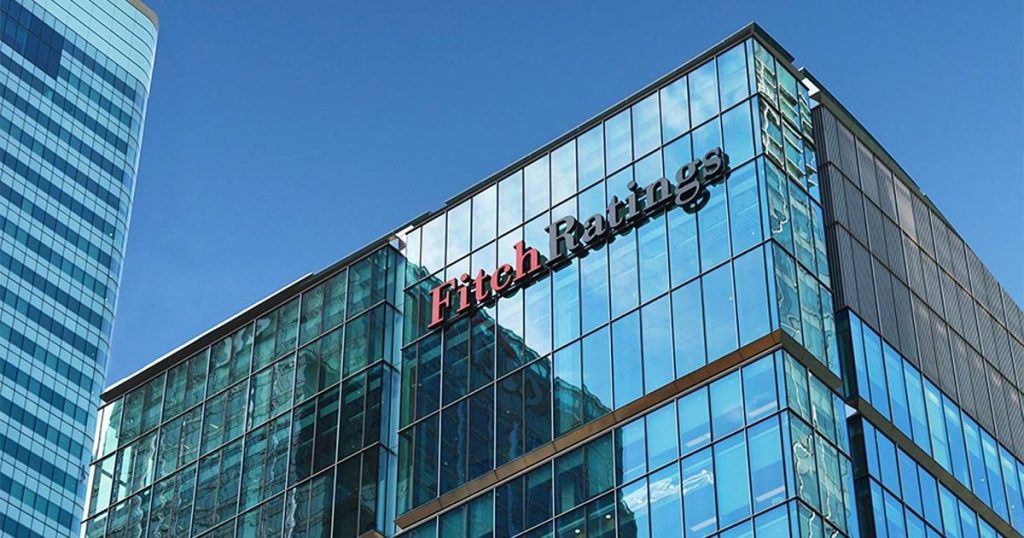Nikkei 225 index had its worst day of the year, ending down 2.3%, while Hang Seng Index closed down 2.5%, after Fitch cut its rating on US debt to AA+…reports Asian Lite News
Global stock markets fell Wednesday after ratings agency Fitch downgraded its US credit rating, citing “a steady deterioration in standards of governance” and the American government’s growing debt burden.
Japan’s benchmark Nikkei 225 (N225) index had its worst day of the year, ending down 2.3%, while Hong Kong’s Hang Seng (HSI) Index closed down 2.5%, after Fitch cut its rating on US debt to AA+ from AAA on Tuesday.
European stocks fared a little better but the region’s benchmark Stoxx 600 index fell 1.4% by 5.57 a.m. ET to its lowest level in two weeks. Germany’s DAX (DAX) dropped 1.4% and France’s CAC (CAC40) 40 fell 1.2%, while London’s FTSE 100 (UKX) also hit a two-week low, down 1.5%.
US stock futures slipped. The S&P 500 index was down 0.8% and the Nasdaq down 1.2% in pre-market. But US Treasuries prices ticked higher, shaving a couple of points off the 10-year yield to 4.03%.
The credit rating downgrade comes after US lawmakers negotiated up until the last minute on a debt ceiling deal earlier this year, risking the nation’s first default. In a meeting with Biden administration officials, representatives from Fitch also repeatedly highlighted the January 6th insurrection as a significant concern as it relates to US governance, a person familiar with the matter said.
“The rating downgrade of the United States reflects the expected fiscal deterioration over the next three years, a high and growing general government debt burden, and the erosion of governance relative to ‘AA’ and ‘AAA’ rated peers over the last two decades that has manifested in repeated debt limit standoffs and last-minute resolutions,” Fitch said in a statement.

The agency expects America’s general government deficit to rise to 6.3% of GDP in 2023, from 3.7% in 2022.
“The last-minute saves performed by Washington aren’t the kind of actions held in high esteem by rating agencies, but the lack of movement in US Treasury bonds … suggests the market has already largely quantified and assessed the damage done,” Sophie Lund-Yates, lead equity analyst at Hargreaves Lansdown, said in a note.
China and Japan are the largest foreign investors in American government debt. Together they own $2 trillion, which is more than a quarter of the $7.6 trillion in US Treasury securities held by foreign countries.
Nonetheless, Goldman Sachs analysts said on Wednesday that they don’t believe there are any meaningful holders of Treasury securities who will be forced to sell due to a downgrade.
“S&P downgraded the sovereign rating in 2011 and while it had a meaningfully negative impact on sentiment, there was no apparent forced selling at that time,” they said in a research note.
“Because Treasury securities are such an important asset class, most investment mandates and regulatory regimes refer to them specifically, rather than AAA-rated government debt,” the Goldman Sachs analysts said.
Rate-sensitive megacap stocks, including Tesla (TSLA.O), Nvidia (NVDA.O), Meta Platforms (META.O) and Apple (AAPL.O), tumbled, as the yield on U.S. 10-year Treasury notes rose to its highest in nearly nine months.
Tech stocks get premium valuations because investors expect profit growth, and many fear high interest rates could slow the economy and dent that growth. Higher rates can make interest-bearing bonds an attractive alternative to stocks for some risk-averse investors, and projected company cash flows are worth less in current dollars when interest rates rise.
The technology index (.SPLRCT), dropping 2.6%, was also the worst performer of the 11 major S&P sectors, with nine in total ending the day lower.
Yields being above 4% is “not what the market wants to see”, according to LPL’s Krosby, who also predicted investors will soon look beyond Fitch’s downgrade and turn their focus to big tech company earnings due after the close on Thursday.
“The market is now going to focus on Amazon.com Inc (AMZN.O) and Apple tomorrow afternoon, and then on the payroll report on Friday, and we’ll say goodbye to Fitch,” Krosby said.
The Dow Jones Industrial Average (.DJI) fell 348.16 points, or 0.98%, to 35,282.52, the S&P 500 (.SPX) lost 63.34 points, or 1.38%, to 4,513.39 and the Nasdaq Composite (.IXIC) dropped 310.47 points, or 2.17%, to 13,973.45.
Meanwhile, the ADP National Employment report showed private payrolls increased more than expected in July, pointing to continued labor market resilience that could shield the economy from a recession.
Despite lingering fears of a recession, corporate America has continued to perform well. With around two-thirds of the S&P 500 having already reported, 79.9% have posted earnings above analysts’ expectations, per Refinitiv I/B/E/S.
This puts the quarter on track for the highest earnings beat rate since the third quarter of 2021, per the data provider.
On the earnings front, CVS Health Corp (CVS.N) gained 3.3% after beating Wall Street estimates for quarterly profit, and Emerson (EMR.N) climbed 3.8% after the industrial software firm raised its annual profit outlook.

